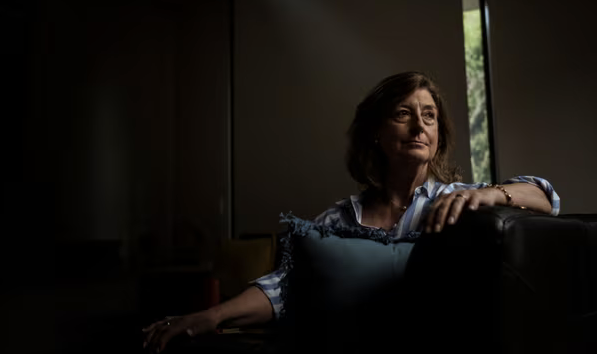
Jane Morris, vice-president of Dying with Dignity Victoria, says her friend, who had motor neurone disease, ‘had a terrible experience and she had to seek help outside of the hospital system’ in order to die via voluntary assisted dying.
Photograph: Christopher Hopkins/The Guardian
When 60-year-old Sally* told her neurologist that she wanted to choose when to die, she was dismissed. Diagnosed with motor neurone disease, Sally knew her condition was incurable and that her rapid decline could include respiratory failure, difficulty swallowing and cognitive decline.
She wanted to die on her own terms, before her symptoms became unbearable. But Sally was receiving treatment at a Catholic palliative care hospital.
Sally lived in Victoria, where legislation allows those with neurodegenerative conditions such as motor neurone disease access to voluntary assisted dying. But her advocates say none of the doctors who diagnosed and treated her would provide the necessary paperwork for her to access euthanasia, nor would they refer her to someone who would.
Sally’s calls and emails to the hospital, an institution that objected to euthanasia, elicited promises of a response at a later date that never came.
Dr Eliana Close, a senior research fellow at the Australian Centre for Health Law Research, has analysed institutional objection to euthanasia and says it is difficult to get data on how prevalent it is.
“We need to now see research and monitoring around how legislation in different states is unfolding and working in practice and whether rights are being respected,” Close says.
“We have certainly found we need stronger national laws to address that power imbalance between institutions and individual rights.”
Close says she finds it “completely abhorrent that publicly funded institutions should be allowed to deny access to legally available healthcare”.
“Not only is that causing harm to the patients in terms of pain and suffering, it’s causing harm to their families who have to witness it – and that has lasting impacts on their bereavement.”
* Name has been changed
Read more … [Source: The Guardian]
